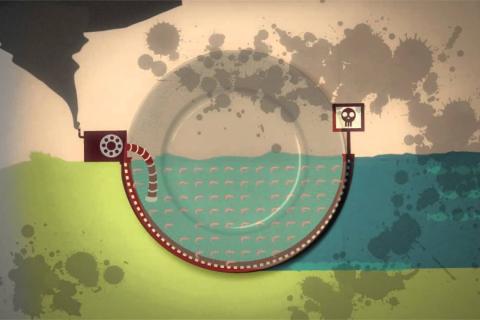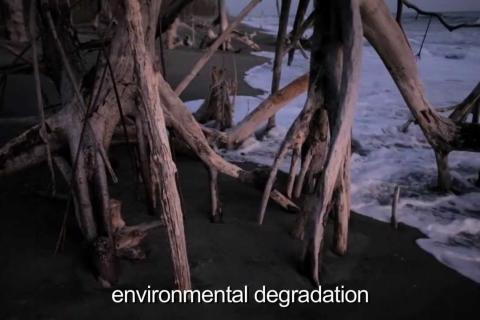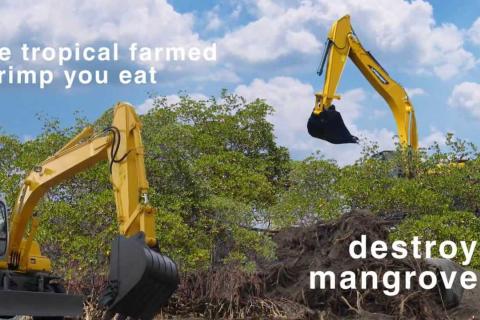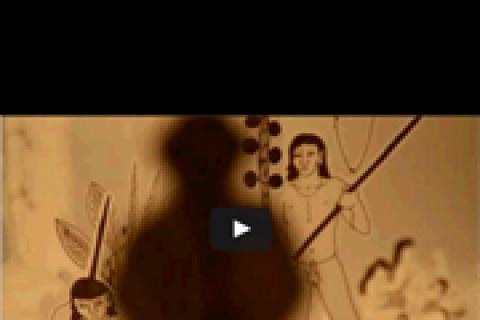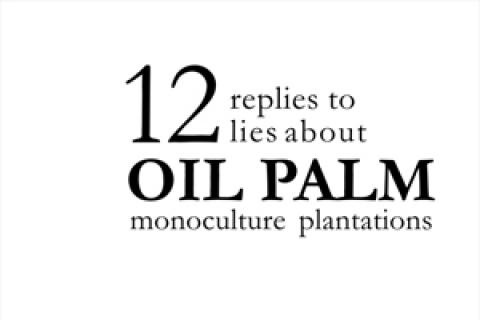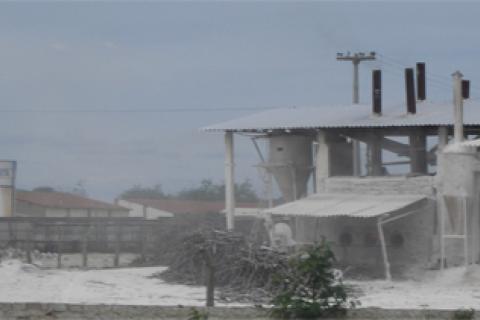The People’s Coalition for Fisheries Justice Indonesia (KIARA) celebrated the World Mangrove Day issuing a press release where it “urged the government to immediately conduct a revocation of the business license and or development projects (oil palm plantations, shrimp farms, coastal reclamation, and so on) that causes the loss of mangrove forests.
Other information
“Yo vivo en el bosque del manglar” - video by CESTA / Amigos de la Tierra El Salvador, available at (in Spanish with English subtitles)
Motion video - by Carly Hoover, MAP's featured artist to celebrate July 26 Mangrove Action Day, at http://player.vimeo.com/video/19264147 (only in English)
“Llora el Manglar”- by Leandro Velasco y PROYDE, ASPA y AZACÁN SERSO Castilla y León
http://www.cultureunplugged.com/documentary/watch-online/play/12853/Llora-el-manglar (in Spanish with English subtitles)
“Question your Shrimp” - Mangrove Action Proyect (MAP), at http://www.youtube.com/watch?v=_KVJbUHGAQg#at=15
WRM information sheets on GE tree research
First posted: 1 August 2008
Last update: August 2014
Tree species being manipulated:
eucalyptus
Aim of genetic manipulation (1,2)
Only available in Spanish -
Con este especial corto audiovisual, el CDES, a través de su Observatorio de Derechos Colectivos, pretende explicar cuáles son los peligros a los que se ven sometidos los Indígenas Asilados, Tagaeri y Taromenane, en su territorio de la selva Ecuatoriana. En estos críticos momentos, su vida depende en gran medida de que nosotros, la sociedad civil, seamos conscientes de los riesos que sufren e intentemos evitarlos. ¿Compartes el video?
Focusing on the claims made by the oil palm industry to “sell” their industrial plantations, the World Rainforest Movement (WRM) has produced a new booklet:
Oil palm: 12 Replies to 12 Lies about Oil Palm monocultures plantations
"Carbon discredited: why the EU should steer clear of forest carbon offsets", published by FERN and Friends of the Earth France, explains why forest carbon projects fail to provide climate, environment, development or financial gains. The organisations demand that the EU, California and any other carbon markets to steer clear of international forest offset credits. The document is available athttp://www.fern.org/nhambita
“El modelo forestal pinochetista y los intentos expansionistas de irresponsables políticos y empresarios” (The Pinochet forestry model and the expansionist efforts of irresponsible politicians and business owners), by Mapuexpress Informativo Mapuche, an independent news agency operated by a Mapuche indigenous organization. A selection of news stories, opinion pieces and background material related to the discussion of a bill presented by the Chilean government for approval with “great urgency”, which seeks to extend Decree Law 701 for another 20 years.
The Araripe Plateau, as an elevated region, plays a key role in maintaining the local microclimate and in the region’s water cycle. It could also be considered the source of biodiversity in the region known as Sertão do Araripe Pernambucano. It is in this very region that a public-private partnership is promoting monoculture eucalyptus plantations as a source of energy for gypsum production. The public agencies involved are the Agronomic Institute of Pernambuco (IPA) and the Rural Federal University of Pernambuco, with the support of the state and federal governments.

